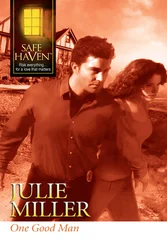Andrew Miller - One Morning Like a Bird
Здесь есть возможность читать онлайн «Andrew Miller - One Morning Like a Bird» весь текст электронной книги совершенно бесплатно (целиком полную версию без сокращений). В некоторых случаях можно слушать аудио, скачать через торрент в формате fb2 и присутствует краткое содержание. Год выпуска: 2009, Издательство: Sceptre, Жанр: Историческая проза, на английском языке. Описание произведения, (предисловие) а так же отзывы посетителей доступны на портале библиотеки ЛибКат.
- Название:One Morning Like a Bird
- Автор:
- Издательство:Sceptre
- Жанр:
- Год:2009
- ISBN:нет данных
- Рейтинг книги:4 / 5. Голосов: 1
-
Избранное:Добавить в избранное
- Отзывы:
-
Ваша оценка:
- 80
- 1
- 2
- 3
- 4
- 5
One Morning Like a Bird: краткое содержание, описание и аннотация
Предлагаем к чтению аннотацию, описание, краткое содержание или предисловие (зависит от того, что написал сам автор книги «One Morning Like a Bird»). Если вы не нашли необходимую информацию о книге — напишите в комментариях, мы постараемся отыскать её.
One Morning Like a Bird — читать онлайн бесплатно полную книгу (весь текст) целиком
Ниже представлен текст книги, разбитый по страницам. Система сохранения места последней прочитанной страницы, позволяет с удобством читать онлайн бесплатно книгу «One Morning Like a Bird», без необходимости каждый раз заново искать на чём Вы остановились. Поставьте закладку, и сможете в любой момент перейти на страницу, на которой закончили чтение.
Интервал:
Закладка:
He collects the tools from the lean-to and leads her down to the pine stump. They work, one behind the other, digging as if the sky might indeed, at any moment, grow dark with enemy planes. By dusk, their faces streaked with black sweat, they are stood to their thighs in a crooked mouth of raw soil. Yuji clambers out, reaches down a hand to Miyo. They sit on the ground, panting, feeling the cold steal into them as their sweat evaporates. She starts to cry again. He does not know what to say. He waits, fingering the blisters on his palms, until her sobs are quieter. ‘Are you hungry?’ he asks. She nods, wipes her nose on her wrist. They leave the tools in the trench, walk slowly through the garden to the unlit house.
5
The professor’s absence is quickly noted, becomes for a week the favourite subject of local gossip, particularly the fact that his wife, an invalid, a woman barely seen in years, has gone with him, along with that frightening maid of hers. To veiled enquiries Yuji makes veiled replies. To Saburo’s veiled taunts he says nothing.
The season’s cold intensifies. He begins to dread the nights on the platform. There is no one now to relieve him at two a.m, no mumbled exchange before sinking down into a dreamless sleep. Miyo would take a turn if he asked her to but he cannot (those thin arms, thin legs) find it proper to make such a request. So the nights are his own, an interminable bridge of hours, of tedium, of cold.
For his duty, this first week in December, he has put on so many layers of clothing his moon-thrown shadow on the outside wall of Father’s room is large as a bear’s. He does not know what the time is — to look at his watch would mean exposing a strip of skin to the air — but he knows (his growing familiarity with stars, with grades of darkness) there are at least four or five hours before the first streaks of the dawn. Too tired even to yawn, he leans against one of the drying posts, listens to the calling of owls, and lets his gaze carry him over roofs and ghostly radio aerials to where the red eye of ‘Jintan Pills’ blinks on, blinks off, blinks on, blinks off. Why, tonight, does the sign bring such odd associations with it? Lilacs, light on silver cutlery, an arm swathed in white and yellow stripes.
He peers into the Kitamura garden, his eyes picking between the shadows, then goes on stiff legs to his room and starts, with only moonlight to help him, to search for the jacket he last wore that day of high summer in the Azabu Hills. He finds it between two others, hanging from the beading, then finds, in the left-hand pocket, the half-dozen little pills Dick Amazawa dropped there. He puts one on his tongue, hesitates, then adds another. All he has to wash them down with is a mouthful of the Korean brandy he keeps in a corner of the platform to stave off the worst of the cold. He drinks, swallows, shudders, resumes his watch.
After fifteen minutes the blood directly under the surface of his skin begins to simmer. Ten minutes after that he is grinding his teeth and shuffling restlessly across the slats of the platform deck. Should he have taken just one of the pills? A half? Too late now. If he has poisoned himself, then this is how he will end, a heap of clothes in which a man is hidden, his face to the stars. He rocks on the balls of his feet, observes, with some fascination, the mist of his own breath as it trails past his cheek. The night is ticking like a clock. The moon gives off a hiss of distant burning. The desire to lie down, to sleep, has been replaced by an equally urgent desire to explain himself to someone, to justify, to lay out his life in a great flood of words . . Should he wake Miyo? Is it time for another pill? One more pill and his body might be shocked into poetry! He might even understand what Amazawa wants for the Unit, what Ishihara’s vision of the future is. Death as a religion? Violent death?
He is standing there, tense with the effort of keeping up with his own thoughts, when the noise, the racket at the edge of hearing he has been hoping would simply fade away, becomes, instead, more insistent. Wooden clappers. A drum. He listens, strains to hear, hears, understands, but cannot quite believe it. He is fire-watching and somewhere — or so the noises tell him — there is a fire. A real fire! He scans the 150 degrees of his view from the platform. Nothing there, nothing at all. What is the procedure now? What is he supposed to do? Call Saburo? Use his whistle? He has not, he realises, paid much attention to the scant instructions he has received, nor has he read the recently issued government manual — other than to glance at the title ( Stay and Fight! ) — a copy of which is under a pile of newspapers on the dresser downstairs.
He goes into the sewing room again, fills his arms with books, and carries them outside. At the back of the platform, the roof slopes to chest height. He builds a step out of dictionaries and novels and clambers up. He has never been on the roof before. The tiles grate and shift beneath his weight. He starts to climb (not a bear any more but a giant slug), writhing over the tiles, the bird droppings, the tufts of grass, the glittering moss, until his gloved hands grasp the ridge and he pulls himself up the final inches. He sees the fire immediately — a small cloud of pulsing orange light somewhere up by Watanabe’s bathhouse — and in his excitement he lets go of the ridge and descends chaotically, losing three buttons from his coat and landing on the platform, winded but unhurt, on the cushion of his own back. He gropes around his neck for the whistle, lets off three short blasts, drops the whistle, and runs through the house.
‘Fire by Watanabe’s,’ he says to Miyo as he pulls on a pair of boots.
‘Fire by Watanabe’s!’ he calls to Saburo, who swings from his gate, bellowing orders. He commands Yuji to stop, Yuji cannot, the little pills will not let him. He mounts his bicycle. His legs seem immensely happy to be peddling. He weaves, stylishly, around all obstacles. ‘Fire by Watanabe’s bathhouse!’ he calls to whoever he passes.
After ten minutes he smells it, a waft of smoke, sour, fungal. He slows. The way now is filling up with drowsy neighbours, bedrobes under winter coats. They wander about, leaderless. He leaves the bicycle against the shuttered window of a shop, and runs, part of a pack of running shadows, the length of a last street.
Already, at least a hundred people have gathered by the building, though the noise of them is buried under the rushing and crackle of the fire. Such is the confusion, the rapid shifting of light and dark, it takes Yuji several moments, standing on tiptoe and craning his neck, to realise that the fire is not by Watanabe’s, it is Watanabe’s. He lets out a sound, a moan of surprise and sorrow. ‘Did they escape?’ he shouts to the woman next to him. She doesn’t hear him, or doesn’t know. From a shattered window a flame shoots out, dies back, then leans from the window beside it, a lunatic in a yellow bed sheet.
Someone passes him a bucket. He passes it on, slopping water over his boots. Someone else sees his armband, the character for fire. The crowd opens a channel, lets him through, pushes him forward. Soon, he is close enough to feel the heat prickling the skin of his face. In the distance he can hear the swelling chant of a fire crew, then a group of men jog past, not firemen but soldiers, cloths tied round their faces. Immediately, unthinkingly, Yuji follows them, runs after them like a boy in a game. They go into the alley at the side of the bathhouse — the side that seeps smoke rather than flames — and climb a flight of rusted metal steps to a door at the level of the first floor. The door is locked. The soldier at the front bursts it open with his boot. On the other side, Mrs Watanabe is sprawled on the mat, her small white feet twitching. Two of the soldiers lift her and retreat towards the alley. The others, Yuji at the rear, start, on hands and knees, to go up the stairs. The smoke above their heads is black, clotted. The stairs are hot to the touch, even through gloves. On one of the steps a hole the size of a horse’s eye has burnt away (or was it always there? A peephole?) and Yuji has a fire-lit glimpse of the women’s baths below, the water crusted with ash.
Читать дальшеИнтервал:
Закладка:
Похожие книги на «One Morning Like a Bird»
Представляем Вашему вниманию похожие книги на «One Morning Like a Bird» списком для выбора. Мы отобрали схожую по названию и смыслу литературу в надежде предоставить читателям больше вариантов отыскать новые, интересные, ещё непрочитанные произведения.
Обсуждение, отзывы о книге «One Morning Like a Bird» и просто собственные мнения читателей. Оставьте ваши комментарии, напишите, что Вы думаете о произведении, его смысле или главных героях. Укажите что конкретно понравилось, а что нет, и почему Вы так считаете.












